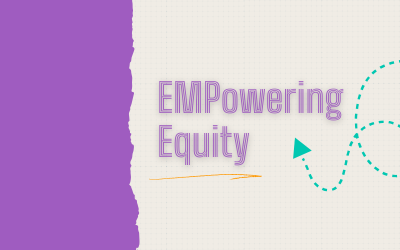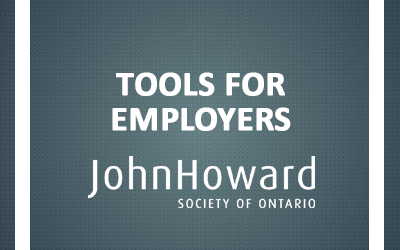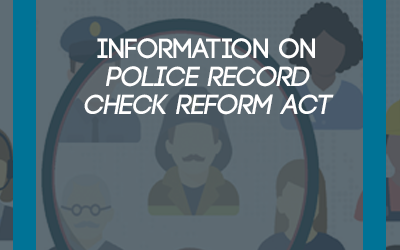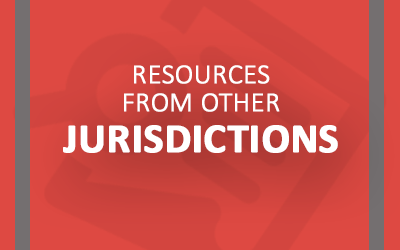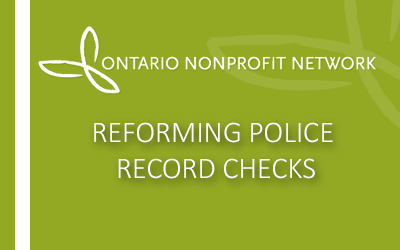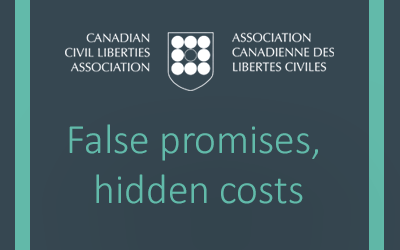For Employers
This section of the HUB provides content such as information, guides, toolkits, research and other resources for Employers, Human Resources Professional, Volunteer Organizations and other decision makers involved in the hiring and screening of prospective applicants.

Best Practices for Using Police Record Checks for Employee & Volunteer Screening
The best practice tips for the use of police record checks outlined below will help you establish rights-respecting screening and employment practices, regardless of what specific statutes apply [i] to your workplace. Be sure to review the “Best Practice Checklist” at the end to see how your organization’s policies and practices measure up.
A. Assess each job or volunteer position individually: what level of screening is required for each specific position?
First, you will need to know exactly what the job is that you want a person to do. What will the job involve? What will the duties be? What kinds of skills will you need? What kind of person are you looking for? In order to try to find the right person for a position, you should make sure you have at hand all the standard screening tools. This includes asking for a resume and cover letter, reference checks, an interview, orientation sessions, job shadowing periods, follow-up reviews, feedback from clients, etc. For a more in-depth overview of screening and supervision best practices, see the following guide.
A police record check should not be considered a ‘standard’ part of the hiring process. For most jobs, a police record check is unnecessary. It is not a particularly good screening tool: having a past police record doesn’t tell you much about what a person will do in the future, and in any event there will be many people who have committed illegal acts but simply were not caught. One study that specifically studied the work context found no correlation between a past conviction and the likelihood to commit a future employment-related offence. In addition, the Occupational Health and Safety Act does not oblige employers to perform record checks on employees.
“the Occupational Health and Safety Act does not require employers or supervisors to do criminal background checks or to otherwise seek out information on workers or other people who are likely to be in the workplace”
Employers often cite concerns about liability and negligent hiring as reasons supporting their record check policies. An employer may be found negligent in its training or supervision of employees or volunteers. There is also a Canadian appellate case that found negligence based on pre-hire screening but not in relation to a police record check. To date, we are not aware of any Canadian cases where an employer has been found liable for failing to conduct a criminal record check on a prospective employee. Employers can be found vicariously liable for wrongful acts of employees in certain circumstances but as mentioned above, police record checks are not an effective predictor of future behaviour.
Instead of relying on record checks, most workplaces should try to be as safe as possible by putting in place policies and procedures that apply to all employees, regardless of whether they have a criminal record or not.
This is not to say that a record check will never be a prudent screening measure. Positions where it may be more justifiable to use a police record check include those where:
B. If you determine a police record check is a prudent screening measure, select the least intrusive level of check, and establish the protocol on how police record information will inform screening, ahead of time
There are three different levels of police record checks available in Ontario:
Our Police Record Assessment Tools, below, provide guidance on how to determine if a) a record check is necessary at all, and if so, b) the type of record check to request. The third level of check, the Vulnerable Sector Check is only authorized in narrow circumstances since it discloses the most sensitive information, including non-conviction records. Please see the Vulnerable Sector Assessment Tool to determine if a position warrants this type of check.
Generally speaking, if you determine a police record check is a prudent measure, you should request the least intrusive record check possible. It should also be the last step of a recruitment process, after a conditional offer has been extended.
Having a criminal record should not automatically disqualify an individual from employment or volunteer opportunities in an organization. For that reason, the screening of applicants should be proportional to the responsibilities of a specific position. This principle should be reflected in a policy or guidelines on how to recruit and screen individuals with a criminal record. For an example, See JHSO’s Police Record Check Policy.
C. Put in place clear processes to guide how management/HR deals with receiving a “positive” record check
Consider the following steps if a criminal record is disclosed or provided through a record check:
Speak to the candidate to get more information. Zero tolerance policies (i.e. rejecting a person automatically because of the presence of a criminal record) are unfair and discriminatory. You can start by asking them to share what they feel comfortable sharing about the circumstances and/or events in their life that led to the charge(s). Remember, non-conviction information means the person is legally innocent. Then consider asking the following:
- How have things changed for you in the months/years since? What did you learn from the experience?
- If applicable, how do you handle situations differently now?
Consider how the organization will keep the applicant’s past private within the organization, and who should know about the applicant’s past. This includes limiting who will see the record check results and limiting who should be told about the individual’s past. Consider giving some guidance to the individual, at the interview stage, that they are not obligated to share their past with anyone outside of the management team.
Consider Ontario Human Rights law and your obligations as an employer.
Consider the type of record. Organizations should be aware of the different types of records: conviction versus non-conviction. See our resource: How to Read a Criminal Record for more details.
Consider the nature of the offence. Criminal record checks do not contain a lot of information. You might see “Assault” or “Breach of Order” as the listed offence, with no additional explanatory information. There is a broad range of circumstances and events that can make up the offence or alleged offence. You can learn this information by speaking with the individual, rather than dismissing them automatically.
Consider the relevance of the record to the position being applied for. Human rights tribunals in Canada have outlined a number of questions that are relevant to determining whether a record is related to a job requirement:
- Does the behaviour for which the charge was laid, if repeated, pose any threat to the employer’s ability to carry on its business safely and efficiently?
- What were the circumstances of the charge and the particulars of the offence involved – e.g., how old was the individual when the events in question occurred? Keep in mind that that studies have shown that after a few years a person with a criminal conviction is at no greater risk of reoffending than any other member of the population.
- How much time has elapsed between the charge and the employment decision?
- What has the individual done during that period of time?
- Have they shown any tendencies to repeat the kind of behaviour for which they were charged?
The following tools are designed to assist management/HR develop and put in place a clear record check process.

How to Read a Criminal Record
How to Read a Criminal Record
This tool is meant to assist employers and individuals in the interpretation of police record check results. Click on the Image on the right for more details.
NOTE: This tool is an example only not all record checks will appear the same. Different police agencies may have different formats.








